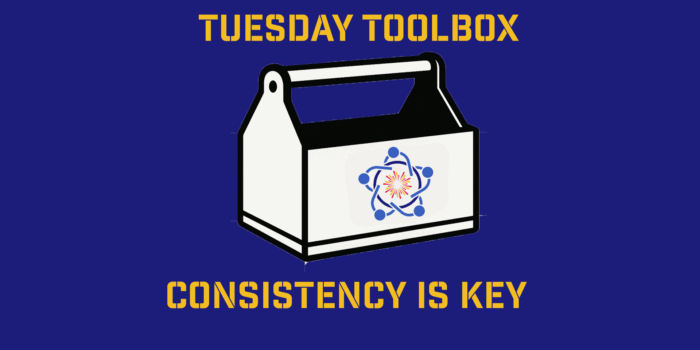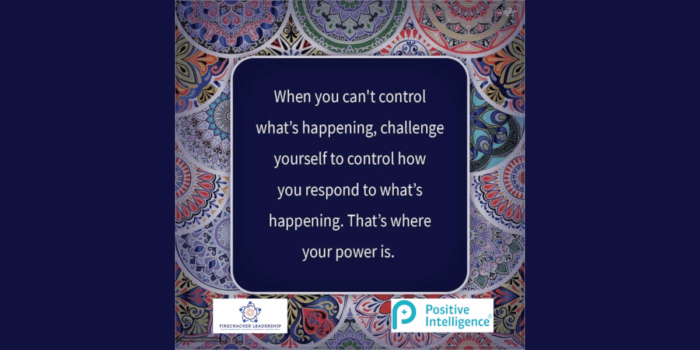My Wednesday Wish for You: Consistency A colleague of mine just won a boxing match. Another finished an Ironman. Neither…
Even extroverts can use this technique.
The pandemic may have been officially over for a while now, but all signs point to the fact that many people are still finding their feet socially.
Searches for “What to talk about at work?” have risen over the past two years. Social media is peppered with stories of people struggling to remember how to talk to other humans. And mental health professionals have noted an uptick in social anxiety. A 2022 study suggested that Covid changed our personalities, nudging us to be less extroverted and agreeable.
Of course, many people have always struggled with talking to strangers. The pandemic seems just to have made us that much more awkward. Which is a shame, because science shows that, though we sometimes dread it, interacting with other humans reliably makes us happier. For entrepreneurs, social graces can be a powerful way to build relationships and increase your chances of success.
So if you’re among the many who sometimes panic when you have to make small talk, is there a solution? I’ve written up plenty of lists of possible conversation starters here on Inc.com in the past, but I recently came across a framework that struck me as even easier to remember and implement. It’s called the FORD Method, and learning it will hopefully banish conversational awkwardness from your life.
Four letters for better conversations
The problem for many of us when it comes to talking to strangers is thinking up questions to keep the conversational ball rolling. This seems easy enough in theory, but as anyone with even a touch of shyness can tell you, it becomes markedly more difficult when you’re several seconds into an awkward pause and your mind goes blank with panic. Avoiding this dreaded moment, therapist Nicole Arzt explains on SocialSelf, can be as easy as memorizing the acronym FORD.
FORD stands for the four big topics of small talk–family, occupation, recreation, dreams–and it can guide you to come up with questions to keep the conversational ball going. Artz offers example questions for each category:
Family
-
Do you have any siblings?
-
How did you two meet? (if you are meeting a couple for the first time)
-
How old is your child?
-
How is your____ (sister, brother, mother, etc.) doing since ____ (event that happened)?
Occupation
-
What do you do for a living?
-
How do you like working at _____?
-
What’s your favorite part of your job?
-
What made you interested in becoming a _____?
Or, if you’re talking to someone who is still in college or training:
-
What are you majoring in?
-
Where are you interning right now?
-
What are you hoping to do after you complete your degree?
Recreation
-
What do you like to do for fun?
-
Have you watched (or read) ______(popular show/book)?
-
What are you up to this weekend?
Dreams
-
Where do you hope to be working in the next few years?
-
Where would you like to travel?
-
What’s something you’d like to try in the future?
-
Would you ever consider trying _____ (particular hobby or activity)?
Artz just cautions that you use reasonable judgment when coming up with FORD Method questions. This should go without saying, but while it’s fine to ask someone how their sister is doing, it’s totally invasive and rude to ask them why they don’t have kids. Common sense applies.
Also, don’t be boring
It’s also important, she adds, to be willing and able to answer these standard questions yourself. “You can’t just interview another person and expect to establish a meaningful relationship. In other words, you need a mutual take-and-give. Pay attention to someone else’s answers and think about how you can draw from your own experience to connect,” she counsels.
If you struggle to talk about yourself, she adds, that might be a sign you need to try new things and challenge yourself with fresh experiences. As comedian Bill Murray once pointed out, not being boring yourself is an under-discussed prerequisite to grabbing others’ interest. “The more you keep yourself active, curious, and enriched, the more you can offer to other people,” is how Artz puts it.
Is there anything wildly new or groundbreaking about the questions suggested by the FORD Method? No–though if that’s what you’re looking for, there are plenty of ideas out there. That’s not the point. The point is to boil down the basics so that you can remember them even when anxiety strikes. Because even your panicked brain can surely remember just four little letters.
BY JESSICA STILLMAN, CONTRIBUTOR, INC.COM



